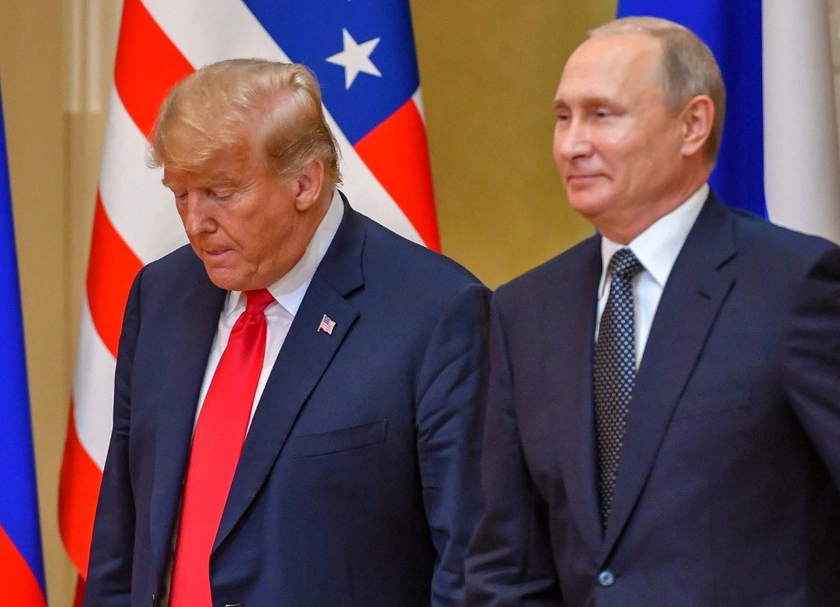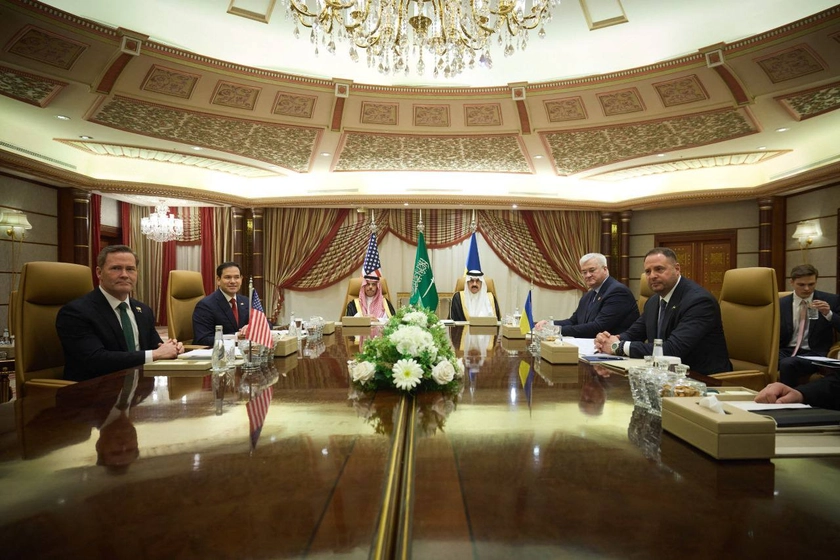Recently, I was accused of xenophobia against Russians – an accusation which had a profound effect on me.
When meeting and having a conversation with a local friend in Barcelona, we got into an argument. I discovered that my favorite matcha place was founded by a Russian couple, and I mentioned to him that I would no longer go there. That left my friend surprised to say the least.
JOIN US ON TELEGRAM
Follow our coverage of the war on the @Kyivpost_official.
His main arguments were along the lines of the following:
- “What do two Russians running a café in Barcelona have to do with the war in Ukraine?”
- “First, you hate Russians, and afterwards you’ll choose to hate another nation;”
- “If Zelensky one day decided to invade Poland, according to your logic you’d be responsible and would have to suffer all the consequences of economic sanctions;”
- “So, if two Arab men attacked me, should I hate the whole Arab population?”
- “Hitler hated the Jews and thought he was doing the right thing.”
I can already sense how Ukrainians reading this are getting annoyed. I’m with you. I think we have every right to be annoyed, just as my friend’s arguments have every right to exist and annoy us.
Such opinions are surprisingly common in Europe, but in a polarized world, there is no black and white.
Peacekeeping organizations such as the United Nations, Amnesty International and the like, were founded after World War II. But we can also see that peace-making politics and policies don’t sit comfortably alongside authoritarianism. Let’s just check the number of wars and conflicts Russia has been involved in since 1945. The number is approaching 30!
Below are my personal views in response to each of the issues my friend raised. I should point out that I’m not a sociologist, politician or historian. I’m a citizen of my country and my country is defending itself against Russian aggression. So, my point of view is certainly subjective. Also, please note that I’m not trying to convince you to think the same way as me. I just want you to read, reflect, and consider why it may be difficult for you to accept the position of someone who becomes a victim of war.
Trump’s Efforts to Brown Nose Putin Continue
What do two Russians running a café in Barcelona have to do with the war in Ukraine?
Well, some 77 % of Russian people support the war in Ukraine. While Ukrainians are dying and Ukrainian businesses are being destroyed, Russians can freely grow their companies. I won’t invest any cent in their business. It’s a principle.
Of course, there will always be “moral” Russian citizens who support peace and are ready to position themselves against their President, Vladimir Putin, but they are still representatives of the Russian imperialistic mindset. It’s likely that they bear those same clichés in their head: that Ukraine is a non-existent and quasi-nation; that half of our territories are Russian; that Ukrainians and Russians are brothers and sisters; and that it’s because of Russia that Ukrainians exist.
Even if those two Russians are personally against the war, they might have relatives who support it and think that Ukrainians have no right to exist.
Four years after pro-Russian President Viktor Yanukovych first came to power in 2010, we took him down. But still you might say: “If Russians speak their mind, they get killed, imprisoned, and tortured.”
Yes, I agree. That is what was happening when we initiated the Maidan in 2013. My university teacher was imprisoned, and another university teacher was shot dead right on Maidan Square by a sniper. We were scared: students, mothers, fathers, sons, daughters, children and grandparents – but we knew there was no future with a pro-Russian president who wanted to “sell” Ukraine out to Russia.
That’s the key difference between Ukrainians and our neighbors. Russians often act as if they have no political agency, no political will and no sense of freedom. Russians are content to choose personal comfort and silence over liberty. Ukrainians are rebels, and the on-going war is more than proof of that. Everyone was sure we would be defeated in a matter of days, but we haven’t given up for a moment since Feb. 24.
So back to the two Russians in Barcelona. Is my unwillingness to see their point of view a sign of Russophobia, xenophobia or discrimination? Or is it my legitimate conscious choice?
Typically, if you don’t like a person and choose to “ghost” them, you are hardly likely to be accused of xenophobia. It’s the same here. I just don’t like people from Russia and try to avoid them. I won’t attack, abuse, damage their property or do any harm to them. I’ll just avoid them.
And I have every right to do so. Go and ask a Palestinian to shop in an Israeli store – it would be weird, right? So why would you ask or expect me to do business with a Russian company if it goes against my values and beliefs?
First, you hate Russians, and afterwards you’ll choose to hate another nation
There’s no other country in the world that has done more harm to Ukrainians than Russia. Please read this article written by Kristina Hook to delve further into the issue. I will just highlight this part:
“For years, Russian leaders have denied the validity of Ukrainian national identity and spoken of eliminating the Ukrainian nation – itself evidence of premeditated intent to commit genocide. Since the invasion began in February, evidence that Russia has genocidal intentions has only mushroomed. The Kremlin doesn’t just want to conquer Ukraine; it wants to eliminate Ukrainian-ness.”
“It wants to eliminate Ukrainian-ness.” Exactly. And one of the ways the Kremlin can perpetuate its mission is to make the Russian population hate Ukrainians via relentless anti-Ukrainian propaganda that has pervaded for centuries.
You might them say: “Oh poor Russians, that’s not their fault – they were fooled!” But is that the fault of Ukrainians? No. And my duty as a Ukrainian is to make sure my country wins this war with as few losses to Ukrainian lives as possible.
Do you know what happened with post-war Germany? Germans were punished for the war and had to pay reparations. Please read the protocol of proceedings from the Yalta Conference. If Russia does the same and follows the protocols as Germany did, then we can talk in a few decades.
This video and Anne Applebaum’s book on the Holodomor in Ukraine (Red Famine) caused by the Soviet government might be also helpful to understand the Ukraine-Russia relationship over the course of history.
If Zelensky one day decided to invade Poland, according to your logic you’d be responsible for that and would have to suffer all the consequences of economic sanctions
Yes, exactly. I’m a citizen of my country and the government represents the people’s choice. Our president was democratically elected and if he did the wrong thing, it would be my responsibility and the responsibility of other Ukrainians to stop him in order to prevent those economic sanctions. It sounds bold, but hey, read the first paragraph. We did that before and we will do it again, if needed.
So, if two Arab men attacked me, do I have to hate the whole Arab population?
It’s an example from a completely different dimension. Here, we are talking about the war and centuries of intentional elimination of Ukrainians and the essence of being Ukrainian. Every person in Ukraine has someone from their family who was starved to death by the soviet power, tortured, imprisoned, or killed for their pro-Ukrainian position.
I think there’s a reason why Russian soldiers (who are ordinary people, by the way) are so violent and use people as shields in battle. Human life is treated with little value in Russian society.
Hitler also hated Jews and thought he was doing the right thing
Yes, but if we make such a comparison, then let me remind you once again: Russia and Russians attacked an independent country – Ukraine – to destroy Ukrainians and wipe the country from the map. So, we are not the Hitler figure here – the Russians are. It’s a normal and natural thing to hate your abuser, torturer, rapist and killer.
Racism is based on the concept of power. For a person from a marginalized group to distrust a person from the oppressor group is not the same thing as someone from the oppressor group (the group with more power) hating someone from the marginalized group.
We have to consider who, historically, has always had more power. Russians have used violence and other oppressive tactics to exert their power over Ukrainians for years. For a Ukrainian to be distrustful of Russians is not based solely on isolated incidents (“two Arab guys attacked me”) but is rather a reflection of the larger power system that has been at play for centuries.
Would you also accuse Jews of “Germanophobia” for hating Nazis? I guess no. Then this whole argument hardly makes sense at all, wouldn’t you agree?
My final thoughts
In summary, are Ukrainians Russophobic? Yes, according to international terms and how we define it in the democratic world. But that’s a light response and reaction compared to the cruelty and death caused by Russians’ hatred of Ukrainians.
And please don’t think that our hatred is one-sided. You can’t even imagine how much Russians despise us and believe that we have no right to exist. Just take a look at this video of a Russian lady verbally abusing a Ukrainian girl near the Russian Embassy in Sweden. How can a random person living in Sweden for many years bear so much hate towards a stranger who is Ukrainian? (And this example is not rare.)
It’s a lot to process, but I hope that you can see the argument why millions of Ukrainians have a full right to despise Russians.
Another important point: If you feel hesitant about asking Ukrainians about the war – please ask us. But don’t apportion blame on us. Try to understand the situation from our point of view.
War is a horrible thing. You kill or get killed. In the informational field, Ukrainians have to be radical and strong. We can’t simply be loyal, soft, compromising and forgiving to our enemy.
Also, remember that your conversation partner might be going through a very difficult process: They might have a missing parent, relative or friend. They might be mourning the loss of a relative, spouse, friend or child. Maybe they have fled the country from constant shelling and are now experiencing trauma, depression, burn-out, feelings of despair, anger and emptiness.
Your patience, kindness, and willingness to listen are appreciated.
The views expressed are those of the author and not necessarily of Kyiv Post.
You can also highlight the text and press Ctrl + Enter












